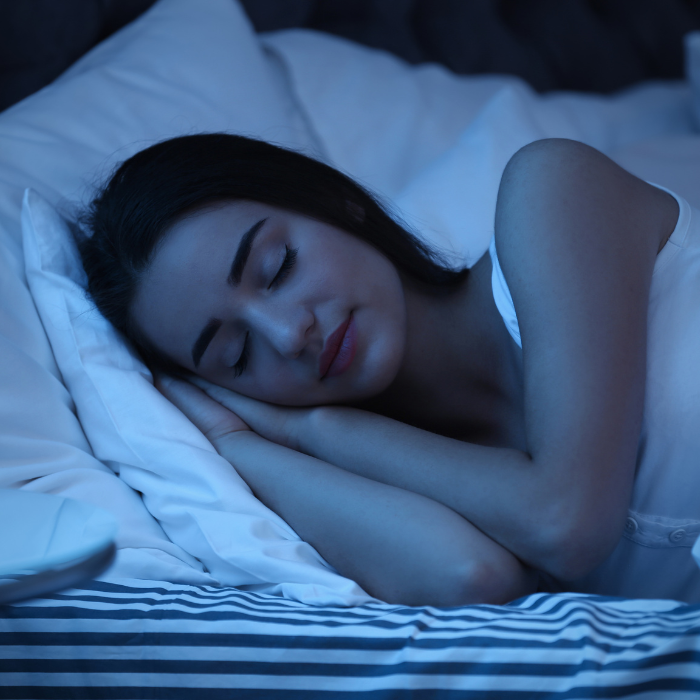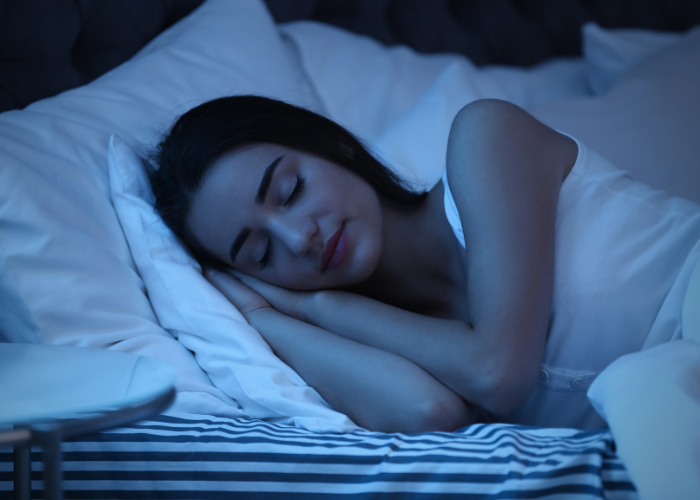Getting quality sleep is one of the best things you can do for your health. It helps with everything from muscle recovery to mental clarity, and yet, so many people struggle to fall asleep and stay asleep. The good news? A few small changes can make a big difference. If you’ve been wondering how to get better sleep, focusing on relaxation is a great place to start.
Why Sleep Matters for Your Health
Your body does some of its most important work while you sleep. From repairing muscle tissue to regulating hormones, deep sleep is when your body restores itself. Poor sleep, on the other hand, can lead to increased stress, reduced immunity, and even chronic pain. If you’re an athlete or active person, sleep is crucial for muscle recovery and preventing injury. The better you sleep, the better your body functions.
The Role of Relaxation in Falling Asleep
One of the biggest reasons people struggle with sleep is an overactive nervous system. When your mind and body are stressed, it’s harder to wind down. Relaxation techniques help shift your body into a restful state, making it easier to fall asleep and stay asleep. Massage therapy, in particular, has been shown to lower cortisol (the stress hormone) and increase serotonin and melatonin—two key hormones that help regulate sleep.

Create a Calming Evening Routine
A consistent bedtime routine tells your body that it’s time to wind down. The key is to create habits that promote relaxation rather than stimulation.
- Read a book – Choose something light and enjoyable (nothing work-related or stressful).
- Stretch or do gentle yoga – Loosening up tight muscles can help prevent nighttime discomfort.
- Take a warm bath – Heat relaxes muscles and signals your body to cool down, which preps you for sleep.
- Limit screen time – Blue light from phones and TVs can disrupt melatonin production, so try to turn off screens at least 30 minutes before bed.
Manage Stress & Anxiety Before Bed
Stress is one of the biggest sleep disruptors. When cortisol levels stay high, it’s difficult for your body to shift into a restful state. To get better sleep, try incorporating stress-reducing activities into your evening.
- Deep breathing – Slow, controlled breaths signal your nervous system to relax.
- Meditation – Even five minutes of mindfulness can help quiet a racing mind.
- Journaling – Writing down your thoughts can help you process the day and let go of stress.
Massage therapy is another great way to lower stress levels. Deep tissue and Swedish massage techniques help relax tense muscles and calm the nervous system, making it easier to fall into a deep sleep.
Optimize Your Sleep Environment
Your surroundings play a big role in sleep quality. A few simple adjustments can help create a more restful space.
- Keep your bedroom cool – The ideal sleep temperature is around 65°F.
- Block out light – Blackout curtains or an eye mask can prevent disruptions from outside light.
- Reduce noise – A white noise machine or fan can drown out unwanted sounds.
- Remove distractions – Avoid keeping your phone or TV in the bedroom to limit stimulation.
Try Relaxation Techniques
If you struggle to quiet your mind or relax your body at night, guided relaxation exercises can help.
- Guided imagery – Picture yourself in a calm, peaceful setting, like a beach or forest.
- Progressive muscle relaxation – Slowly tense and release each muscle group to ease tension.
- Gentle stretching – Loosening up before bed can prevent stiffness and discomfort.
The Role of Massage in Sleep Wellness
Massage therapy is one of the most effective ways to relax both the body and mind. Deep tissue and Swedish massage work to reduce muscle tension, improve circulation, and promote the release of serotonin and melatonin. Many clients at Massage Strong report better sleep after regular sessions, especially those dealing with chronic pain or high levels of stress.
Nutrition & Sleep: What to Eat (and Avoid)
What you eat before bed can impact your sleep quality.
Foods that support sleep:
- Bananas (rich in magnesium and potassium)
- Almonds (contain melatonin and healthy fats)
- Chamomile tea (known for its calming effects)
Foods and drinks to avoid:
- Caffeine (even in the afternoon, it can disrupt sleep)
- Alcohol (can make you drowsy but disrupts deep sleep)
- Heavy meals (can lead to discomfort and indigestion)
Stick to a Consistent Sleep Schedule
Your body thrives on routine. Going to bed and waking up at the same time every day—even on weekends—helps regulate your internal clock. If you need to adjust your sleep schedule, do it gradually by shifting your bedtime 15-30 minutes earlier each night. Regular exercise can also improve sleep, but avoid intense workouts too close to bedtime, as they can increase energy levels.
Small Changes, Big Results
Better sleep doesn’t happen overnight, but small, consistent changes can make a big difference. Whether it’s improving your bedtime routine, reducing stress, or scheduling a massage to help your body relax, the goal is to create an environment where sleep comes naturally. If chronic tension or stress is keeping you up at night, consider booking a deep tissue or Swedish massage at Massage Strong to help your body reset.
